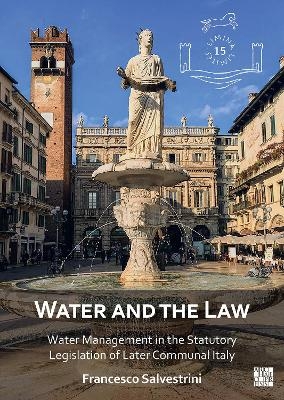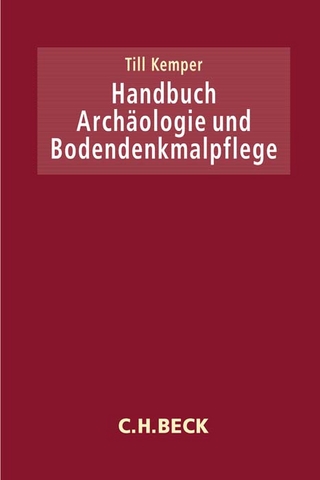
Water and the Law: Water Management in the Statutory Legislation of Later Communal Italy
Archaeopress Archaeology (Verlag)
978-1-80327-736-3 (ISBN)
Water and the Law investigates water resource law in the statutory legislation codified by commune, oligarchic and seigneurial governments of cities and smaller municipalities in Northern and Central Italy from the thirteenth to the fourteenth centuries. It aims to shed light on the relationship between water management norms and the local environment, that is how urban governments planned the use and distribution of water, and the protection of inhabited areas from the danger of flooding. Through a careful analysis of just two hundred statutory regulations that deal with water resources, the text compares the solutions adopted in Northern Italy, presenting a relatively large water supply and a dense network of tributaries of the river Po, with the situation in central areas of the peninsula (including Rome), where smaller watercourses with torrential characteristics - such as the Arno and the Tiber - interact with important cities and manufacturing centres like Florence. From this point of view, the book highlights the existence of a border between Continental Italy (north of the Tuscan-Emilian and Tuscany-Romagna Apennines) and the Peninsular Italy (south of it). In fact, when it came to building the necessary infrastructure for the supply of water and its distribution for irrigation purposes, municipal authorities in the Po area made provision for private-sector initiatives, whereas in the central regions of the country, such initiatives were largely the result of public works and projects pursued by the Popular governments at the helm of numerous cities. Lastly, the text relativises the awareness of legislators concerning the health and hygiene risks associated with the use and improper disposal of polluted and infected water, preferring to speak about a normative defence of the semantically broader category of decorum.
Francesco Salvestrini is Full Professor in Medieval History at the University of Florence (IT), and has been visiting professor at the University of Bristol (UK), Universität Kassel (D), Hankuk University of Foreign Studies - Seoul (KOR), Université de Tours (F). He is especially interested in ecclesiastical, social and environmental history of Late Medieval Italy and Europe. He studied the Bendictine tradition, the Vallumbrosan monastic congregation, the Tuscan Cistercians, the Camaldule and Sylvestrine monastic orders, Italian Augustinians and Minorites; the municipal law of many Italian towns and cities, with attention to their translation from Latin into Vernacular; and the interrelations among medieval ecosystems, water resources and human settlements. He was the Director of the Project Erasmus+ UNINET in 2019. Among his main publications are: 2005: Libera città su fiume regale. Firenze e l’Arno dall’antichità al Quattrocento. Firenze: Nardini; 2017: Il carisma della magnificenza. L’abate vallombrosano Biagio Milanesi e la tradizione benedettina nell’Italia del Rinascimento. Roma: Viella.
Introduction
I. Medieval Statutes and Water Management: The Italian Context
II. Verifying a Hypothesis
III. Legal Norms for Water Management: The Urban Context
IV. Legal Norms for Water Management: Rural Areas
V. Conflicts and Regulatory ‘Solutions’
VI. Water Quality
VII. Water-driven Machinery
VIII. Transportation of Merchandise and People. Timber Rafting
IX. Protection from Flooding and the Religious Dimension
XI. Concluding Remarks
List of statutes examined
Bibliography
Figures
Indexes
| Erscheinungsdatum | 11.04.2024 |
|---|---|
| Reihe/Serie | Limina/Limites: Archaeologies, histories, islands and borders in the Mediterranean (365-1556) |
| Zusatzinfo | 48 figures (colour throughout) |
| Verlagsort | Oxford |
| Sprache | englisch |
| Maße | 245 x 175 mm |
| Themenwelt | Geisteswissenschaften ► Archäologie |
| ISBN-10 | 1-80327-736-X / 180327736X |
| ISBN-13 | 978-1-80327-736-3 / 9781803277363 |
| Zustand | Neuware |
| Informationen gemäß Produktsicherheitsverordnung (GPSR) | |
| Haben Sie eine Frage zum Produkt? |
aus dem Bereich


